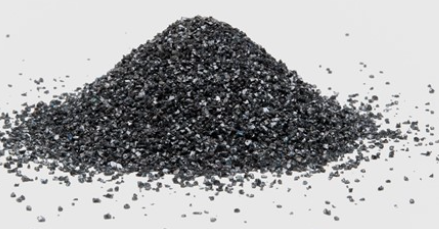Silicon carbide (SiC) is a highly durable material renowned for its hardness, thermal conductivity, and chemical resistance. This versatile compound finds applications across various industries due to its exceptional properties. Here, we explore the key uses of silicon carbide in different sectors.

1. Abrasives and Cutting Tools
Silicon carbide is one of the hardest materials available, second only to diamonds. This makes it an ideal choice for abrasive materials and cutting tools. SiC is commonly used in:
- Grinding wheels: Its hardness allows for efficient material removal and surface finishing.
- Sandpapers: SiC abrasives provide excellent cutting ability and longevity.
- Cutting tools: Drill bits, saw blades, and other cutting implements benefit from its durability and precision.
2. Electronics and Semiconductors
The electronics industry extensively uses silicon carbide due to its superior electrical properties. It offers:
- Power Electronics: SiC semiconductors can operate at higher voltages, frequencies, and temperatures compared to silicon, making them ideal for power devices like diodes, MOSFETs, and transistors.
- LEDs: SiC substrates are used in the production of high-efficiency light-emitting diodes (LEDs) due to their high thermal conductivity and lattice structure compatibility.
3. Automotive Industry
In the automotive sector, silicon carbide plays a crucial role in enhancing the performance and efficiency of vehicles:
- Electric Vehicles (EVs): SiC power electronics improve the efficiency and range of electric vehicles by reducing energy losses in inverters and charging systems.
- Brake Systems: SiC is used in advanced ceramic brake discs, providing superior heat dissipation and wear resistance.
4. Aerospace and Defense
Silicon carbide's high-temperature stability and strength make it suitable for aerospace and defense applications:
- Turbine Components: SiC composites are used in gas turbines and jet engines, where high-temperature performance and thermal shock resistance are essential.
- Armor: Lightweight and hard, SiC is used in armor for military vehicles and personal protective gear.
5. Energy Sector
The energy industry benefits from silicon carbide in several ways:
- Solar Panels: SiC is used in photovoltaic cells and power inverters for solar energy systems, enhancing efficiency and durability.
- Nuclear Reactors: SiC composites are being explored for use in fuel cladding and structural components due to their radiation resistance and thermal properties.
6. Industrial Applications
Silicon carbide is also widely used in various industrial applications:
- Kiln Furnishings: Its ability to withstand high temperatures and thermal cycling makes SiC ideal for use in kiln shelves and beams.
- Heat Exchangers: SiC heat exchangers offer high thermal conductivity and corrosion resistance, making them suitable for harsh chemical environments.
7. Medical Devices
In the medical field, silicon carbide is used in prosthetics and surgical tools:
- Prosthetics: SiC coatings on joint replacements improve wear resistance and biocompatibility.
- Surgical Tools: The hardness and sharpness of SiC make it useful in precision surgical instruments.
Silicon carbide is a remarkably versatile material with applications spanning multiple industries due to its unique combination of hardness, thermal stability, and chemical resistance. From abrasives and electronics to automotive and medical devices, SiC continues to be an essential material driving innovation and performance in modern technology. As research and development continue, the potential applications of silicon carbide are likely to expand, further solidifying its role as a critical material in advanced manufacturing and technology sectors.
